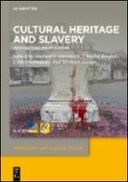Explore

Cultural Heritage and Slavery
0 Ungluers have
Faved this Work
Login to Fave
In the recent cultural heritage boom, community-based and national identity projects are intertwined with interest in cultural tourism and sites of the memory of enslavement. Questions of historical guilt and present responsibility have become a source of social conflict, particularly in multicultural societies with an enslaving past. This became apparent in the context of the Black Lives Matter movement in 2020, when statues of enslavers and colonizers were toppled, controversial debates about streets and places named after them re-ignited, and the European Union apologized for slavery after the racist murder of George Floyd. Related debates focus on museums, on artworks acquired unjustly in societies under colonial rule, the question of whether and how museums should narrate the hidden past of enslavement and colonialism, including their own colonial origins with respect to narratives about presumed European supremacy, and the need to establish new monuments for the enslaved, their resistance, and abolitionists of African descent. In this volume, we address this dissonant cultural heritage in Europe, with a strong focus on the tangible remains of enslavement in the Atlantic space in the continent. This may concern, for instance, the residences of royal, noble, and bourgeois enslavers; charitable and cultural institutions, universities, banks, and insurance companies, financed by the traders and owners of enslaved Africans; merchants who dealt in sugar, coffee, and cotton; and the owners of factories who profited from exports to the African and Caribbean markets related to Atlantic slavery. ; In the recent cultural heritage boom, community-based and national identity projects are intertwined with interest in cultural tourism and sites of the memory of enslavement. Questions of historical guilt and present responsibility have become a source of social conflict, particularly in multicultural societies with an enslaving past. This became apparent in the context of the Black Lives Matter movement in 2020, when statues of enslavers and colonizers were toppled, controversial debates about streets and places named after them re-ignited, and the European Union apologized for slavery after the racist murder of George Floyd. Related debates focus on museums, on artworks acquired unjustly in societies under colonial rule, the question of whether and how museums should narrate the hidden past of enslavement and colonialism, including their own colonial origins with respect to narratives about presumed European supremacy, and the need to establish new monuments for the enslaved, their resistance, and abolitionists of African descent. In this volume, we address this dissonant cultural heritage in Europe, with a strong focus on the tangible remains of enslavement in the Atlantic space in the continent. This may concern, for instance, the residences of royal, noble, and bourgeois enslavers; charitable and cultural institutions, universities, banks, and insurance companies, financed by the traders and owners of enslaved Africans; merchants who dealt in sugar, coffee, and cotton; and the owners of factories who profited from exports to the African and Caribbean markets related to Atlantic slavery.
This book is included in DOAB.
Why read this book? Have your say.
You must be logged in to comment.
Rights Information
Are you the author or publisher of this work? If so, you can claim it as yours by registering as an Unglue.it rights holder.Downloads
This work has been downloaded 99 times via unglue.it ebook links.
- 99 - pdf (CC BY-NC-ND) at Unglue.it.
Keywords
- decolonialization
- Diversität
- Diversity
- Early modern history: c 1450/1500 to c 1700
- Entkolonialisierung
- General & world history
- History
- History: earliest times to present day
- History: specific events & topics
- Humanities
- Literary studies: general
- Literature & literary studies
- Literature: history & criticism
- National liberation & independence, post-colonialism
- Postcolonialism
- Postkolonialismus
- thema EDItEUR::3 Time period qualifiers::3M c 1500 onwards to present day
- thema EDItEUR::D Biography, Literature and Literary studies::DS Literature: history and criticism::DSB Literary studies: general
- thema EDItEUR::N History and Archaeology
- thema EDItEUR::N History and Archaeology::NH History
- thema EDItEUR::N History and Archaeology::NH History::NHB General and world history
- thema EDItEUR::N History and Archaeology::NH History::NHT History: specific events and topics::NHTR National liberation and independence
Links
DOI: 10.1515/9783111331492Editions

